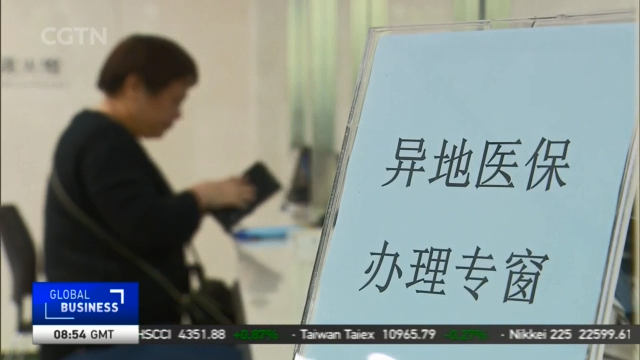
17:22, 25-Jul-2018
Delta Series: Consistent standard make life more enjoyable
Updated
17:06, 28-Jul-2018
03:07

Today we continue a five part series of reports that will air every Friday on China's efforts to integrate and develop the Yangtze Delta Region.
Thanks to the information highway, from 2009 onwards, senior citizens in the four provinces and cities of the Yangtze Delta have no longer had to return to their home town to apply for pensions. They can do it online. The flow of information makes life easier than ever for people in the Yangtze Delta. Considering the cost and environment, many elderly people are now choosing to live in different places than where they come from, which has created a new demand. Ten years ago, the 12 cities in the region started a remote reimbursement program for medical expenses.
SHI JUN JIAXING SOCIAL SECURITY BUREAU, SH MEDICAL AGENCY SERVICE "In the past, we used traditional operations and the materials had to be handled manually. The process took one week. I collected their materials and then delivered them to Shanghai."
Since 2013, the flow of information has made things simpler and faster. After the personal information is input into the system and is reviewed, the settlement information will be automatically transmitted to the medical insurance system in Shanghai. The reimbursement will then be deposited automatically to the person's bank account.
WANG BAOGUO, DEPUTY DIRECTOR JIAXING SOCIAL SECURITY BUREAU "It is now possible to get reimbursed in a week or ten days at the most. There are fewer errors and efficiency has vastly improved."
Over the years, only 12 cities could handle remote reimbursements. Last summer, a platform for remote medical insurance reimbursement was finally launched to cover the entire country. The remote settlement of in-patient medical insurance is just a beginning. What people expect is real-time settlement of out-patient and emergency room expenses in the Yangtze River Delta.
On the national data platform of the Shanghai Medical Insurance Center, the top three places that patients come from are Zhejiang, Jiangsu and Anhui. The patients from these three provinces account for more than 60% of the patients who need remote settlement in Shanghai. Prior to the implementation of the remote settlement policy, such a huge amount of expenditure on medical insurance was completely reviewed and settled by the medical insurance systems in various regions; while the remote medical insurance settlement changed the supervision model, and the review of settlement is now handled where they receive medical service.
Remote settlement has changed the way we pay for medical care. This also means that supervision has become a new issue, which is slated to be the focus of inter-city cooperation of the Yangtze Delta in the next three years.
The Yangtze Delta Region is becoming more interconnected than ever before and the rapid flow of information within the region is making it all possible.

SITEMAP
Copyright © 2018 CGTN. Beijing ICP prepared NO.16065310-3
Copyright © 2018 CGTN. Beijing ICP prepared NO.16065310-3